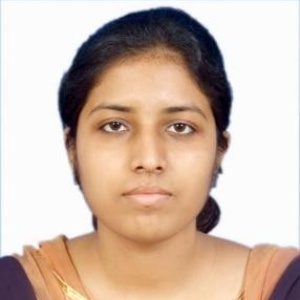Title : Isolation and identification of salt-tolerant plant growth-promoting rhizobacteria from technosoils affected by saline effluents from the lime repository
Abstract:
Technosoils are anthropogenically disturbed soils. Microorganisms retrieved from such habitats, due to their natural adaptations to harsh environmental conditions, can be useful and find applications in agriculture, bioremediation, industry, and medicine. Nitrogen fixing bacteria were isolated from the rhizosphere of Salicornia europaea (L.), Tripolium pannonicum subsp. tripolium (L.) Greuter, wheat (Triticum aestivum L.) and maize (Zea mays L.) grown in the technosoils in Janikowo, central Poland, affected by saline effluents from the soda lime repository. Nitrogen-free semisolid JNFb, JMV and Azotobacter medium were used for enrichment and isolation of diazotrophic bacteria. A total of 12 bacteria were selected which showed the presence of the nifH gene which were subsequently identified using the 16S rRNA. The isolates were tested for other growth promoting traits such as ammonia production, phosphate solubilisation, 1- aminocyclopropane-1-carboxylic acid (ACC) deaminase activity, and production of indole acetic acid (IAA), siderophore, HCN, EPS, and gibberellic acid. Salt (0% - 4%) and pH (6-9) tolerance were also tested which showed that they are tolerant to a range of pH and salt concentration. The selected strains were also checked for their resistance to fungal plant pathogens and antibiotics. Finally, a germination test was performed on wheat seeds with NaCl stress of 150 mM. Three strains Azotobacter chrococcum, Agrobacterium pusense, and Agrobacterium arsenijevicii significantly promoted the growth of seedlings’ roots and hypocotyls in the salt stress compared to seedlings without bacteria (P < 0.001). Sphingobium fuliginis significantly promoted seedling growth without any stress compared to control seedlings (P < 0.05). A detailed study was performed on diversified PGPR isolated from the technosoils. The rhizosphere of the plants grown in technosoils is a valuable source of halotolerant diazotrophic bacteria with various plant growth-promoting potential and fertilization by the potential PGPR will be further tested at the field level for exploitation as bioinoculant. The present work is a part of project NitroFixSal (N fixing bacteria from extreme environments as a remedy for nitrogen deficiency in saline soils), Project code: 101038072, funded under H2020 | MSCA-IF-EF-ST.



